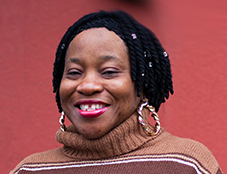Getting it right for the individual and their carer
At NHS England we understand carers’ views, needs and experiences must inform efforts to improve the health and social care provided to the people they support day in, day out.
Transforming Care Partnerships across England are working to improve care for individuals with a learning disability and/or autism, which in turn is alleviating pressure and improving their carers’ quality of life.
NHS England’s work to transform care for all people with a learning disability and/or autism, including those whose behaviour can challenge is about ensuring people and their families get the right support and have equal access to healthcare. This means they are partners in their care and treatment, and can influence what that support looks like.
Care and Treatment Reviews were developed as part of NHS England’s commitment to transform care, designed to ensure individuals get the right care, in the right place that meets their needs, and they are involved in any decisions about their care. Individuals’ family members and/or carers are vital to this process – helping shape a future package of care and support which meets theirs and their loved ones needs.
Today, on Carers Rights Day, we wanted to feature the voice of a real carer. Freda McEwen cares for her 20-year old son Tony who has autism. She believes that, with the right support, carers can aspire to full and rewarding lives. Here’s her story:
 Freda McEwen: ‘Once I identified as a carer, I found services were much more understanding of my role.’
Freda McEwen: ‘Once I identified as a carer, I found services were much more understanding of my role.’
Caring for my son who is now 20 years old and was diagnosed at the age of four is a role that has become second nature to me.
Initially, caring for my son was very tough as I was ignorant of where – and how – I could find help. After some time, I recognised my caring role and sought support from Carers UK who directed me to practical help and told me about the financial support I could receive.
Once I identified as a carer, I found services were much more understanding of my role. My GP was very helpful; supporting me by ensuring that I received health checks every 6 months and the flu jab. My workplace also recognised my caring role and gave me a few days extra annual leave.
It was tough working and being a carer, especially in a demanding work environment, but the measures my employer put in place to support me really helped. I was allowed to have a flexible working pattern and they understood if I had to leave early to go to meetings about Tony’s behaviour.
I had a carer’s assessment when he turned 16. This helped me to understand the potential impact of caring on my health. It also enabled me to look at my needs rather than concentrate only on Tony’s, as I had done previously.
Volunteers can meet other carers and help Carers UK raise awareness of support.
Caring can be isolating. However, volunteering for Carers UK enabled me to meet other carers who were thriving in their roles and saw it as a privilege, as I do.
With support, I have been able to do a lot of things I have always wanted to do – I have published three books and I now run a non-profit organisation in my local area.
I would like to emphasise that with the right support – and positive networks – a carer can aspire to reach their full potential.
Find out more about the transforming care partnerships in the south of England.
Looking after someone? Here is more information and support for carers.

